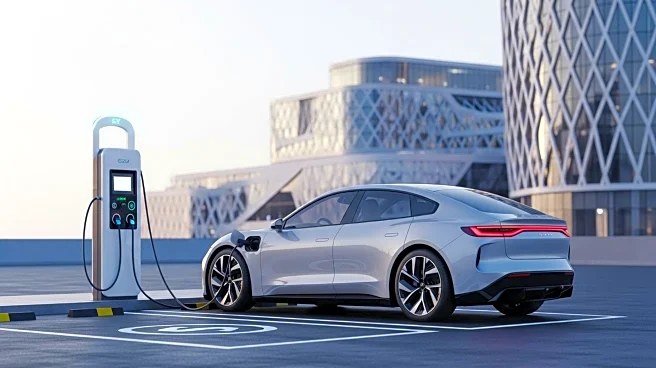What's Happening?
Recent data shows that electric vehicles (EVs) now account for over 12% of total auto sales at several major auto brands in the United States. Cadillac leads with 26.6% of its sales coming from EVs, followed by Acura, Audi, and Porsche, each with over 14% EV sales. BMW also reports 12.2% of its sales as EVs. Among auto groups, BMW Group has 11.3% of its sales from EVs, with Volkswagen Group at 8.5%. Despite these gains, the overall market share of EVs remains relatively low, highlighting the ongoing transition within the automotive industry towards electrification.
Why It's Important?
The increasing share of EV sales among major auto brands signifies a growing consumer acceptance and demand for electric vehicles in the U.S. market. This trend is crucial for reducing carbon emissions and achieving sustainability goals. The shift towards EVs also represents a significant transformation in the automotive industry, with implications for manufacturing, supply chains, and energy consumption. Brands that successfully increase their EV offerings may gain a competitive edge, while those lagging behind could face challenges in adapting to changing market dynamics and regulatory pressures.
What's Next?
As the EV market continues to expand, auto manufacturers are likely to increase their investment in electric vehicle technology and infrastructure. This could lead to more competitive pricing, improved vehicle range, and enhanced charging networks. Policymakers may also play a role in accelerating EV adoption through incentives and regulations aimed at reducing emissions. The pace of this transition will depend on technological advancements, consumer preferences, and the broader economic environment.








